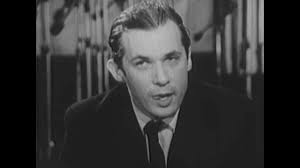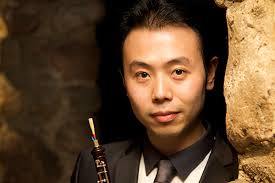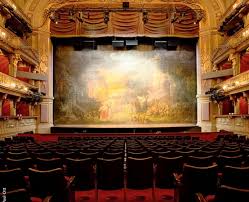Things that Glenn Gould composed
mainAccording to Jessie Greig, Glenn’s cousin and confidante, at 50 Gould would retire, write and compose. We will never know why so little of the music that Gould thought and talked of writing ever got written. Part of Gould’s failure as a composer came from the distractions of other activities and all the disturbances of daily life. “He hated it that everything (he composed) came out sounding like everybody else” he told Leonard Bernstein. Amongst the few works that were found in Gould’s personal belongings were 2 little pieces recorded by Émile Naoumoff, a Bulgarian pianist and composer who was Nadia Boulanger’s last disciple. She referred to him as “the gift of my old age”. Since 1998, he has been a professor at Indiana University Jacobs School of Music, where he teaches applied piano and graduate-level seminars on keyboard interpretation.






“We will never know why so little of the music that Gould thought and talked of writing ever got written.”
I think dying at 50, after waiting until 50 to do it, might be a reason.
It also takes time and practise for a composer to find their individual voice. Almost everyone who tries to compose will start by sounding like someone else while they learn to compose.
Gould had a habit of doing things for which he was not talented – composing was one of them. Would he have stuck to the thing he was most talented at – playing the piano.
He was a better / more interesting pianist because he dabbled in all these other things. The curse of specialisation in evidence from some of the composers and performers churned out of music conservatories and other such places.
For example , at the very estimable Purcell School you can be a first study composer from the age of 11 which is a nonsense really.
But he WAS a prolific composer! His radio documentaries are ground-breaking in “contrapuntal” audio and visual images. His filmed talks were composed thoroughly, even with guest artists and interviewers. His costumed alter egos commented on film humorously on various topics. And his writings—essays for music journals as well as album liner notes—are voluminous on music, interpretation, composers, and outlooks on life. To say Gould was not a composer ignores the enormous time he spent composing many other things.
He also often said that there is no point is playing something the same way dozens of other musicians have always played it, so he consciously tried to find new ways to communicate old music. Why would he try to write new music if he felt he didn’t have something new to add?
Beyond his small output of original compositions, he was a prolific writer of transcriptions, just like Liszt. There are his piano transcriptions of Götterdämmerung, Meistersinger, Siegfried’s Rhine Journey, and Good Heavens!, Strauss’s Electra!
Gould’s music in this video sounds like Schoenberg’s middle period, like an anxious soul on the brink of quietly dissolving. It’s good as a point of departure but writing music also means development of one’s sources, until it becomes something more psychologically layered and interesting.
Performers who write music ‘on the side’ almost never achieve something really interesting, it needs much more attention and time.
It is another matter if a composer is also a performer as was customary in former ages, instead of the other way around. When the musical language became more personal and more complex, these two different activities could get into each other’s way. For instance, Strauss and Mahler were busy conductors and not only the advantages (good feeling for the orchestra) but also sometimes the disadvantages (sloppy thinking in the one, rambling structure in the other) can be clearly heard. The relationship between writing and performing became one burdened with problems and by ca. 1900 no longer a natural one.